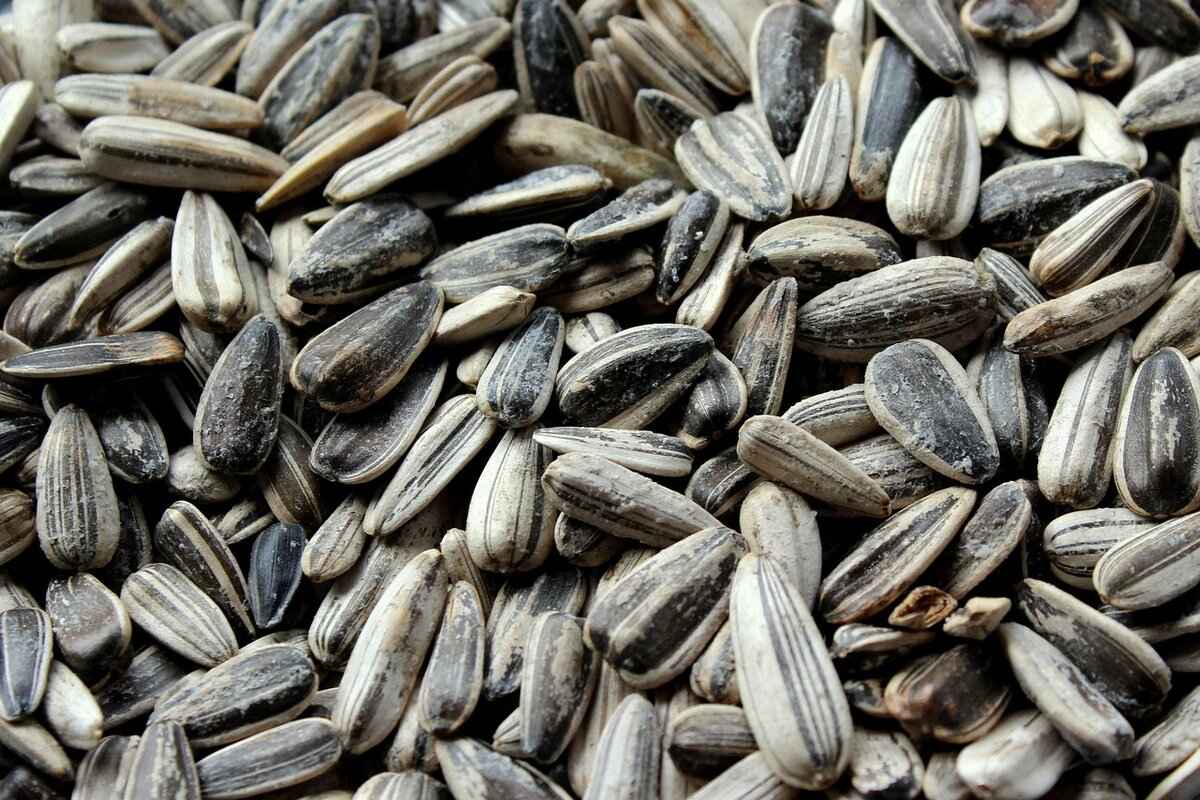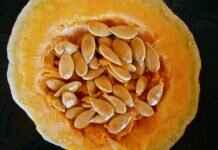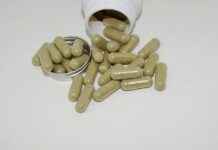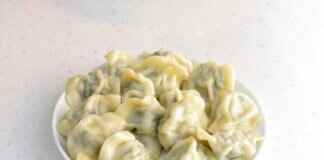Chia seeds, derived from the Salvia hispanica plant, are tiny, nutrient-dense seeds that have gained immense popularity in recent years. Their health benefits are extensive, making them a staple in many health-conscious diets. This article delves into the various advantages of chia seeds, highlighting their nutritional value, impact on weight loss, and benefits for heart health and digestion.
Chia seeds are often classified as a superfood due to their remarkable nutrient profile. They are abundant in:
- Omega-3 fatty acids: Essential for heart health.
- Dietary fiber: Aids in digestion and weight management.
- Proteins: Vital for muscle repair and growth.
- Essential minerals: Including calcium, magnesium, and phosphorus.
Incorporating chia seeds into your diet may significantly assist with weight loss. Their ability to absorb water allows them to expand in the stomach, which can promote a feeling of fullness. This property can help reduce overall calorie intake.
Furthermore, the high fiber content in chia seeds aids in regulating blood sugar levels, preventing spikes that lead to cravings. This makes them an excellent addition to meals and snacks for those looking to manage their weight effectively.
Chia seeds can play a pivotal role in enhancing heart health. Research indicates that they can:
- Lower LDL cholesterol levels while increasing HDL cholesterol.
- Help regulate blood pressure, particularly in individuals with hypertension.
- Reduce inflammation, which is a contributing factor to heart disease.
The high fiber content in chia seeds is beneficial for maintaining a healthy digestive system. They promote regular bowel movements and help prevent constipation. Additionally, chia seeds act as prebiotics, which support the growth of beneficial gut bacteria, essential for optimal digestion.
When soaked in water, chia seeds form a gel-like substance that aids in hydration and facilitates smooth digestion as food passes through the intestines.
While chia seeds are generally safe for most individuals, consuming them in excessive amounts without adequate hydration may lead to digestive discomfort, including bloating or gas. Additionally, although rare, some people may experience allergic reactions to chia seeds, resulting in symptoms such as itching or swelling.
Adding chia seeds to your meals is simple and versatile. Here are some practical ways to enjoy them:
- Chia Puddings: Mix chia seeds with milk or plant-based alternatives and let them sit overnight to create a delicious pudding.
- Smoothies: Blend chia seeds into your favorite smoothies for an added nutritional boost.
- Baking: Incorporate them into baked goods like muffins and bread for enhanced texture and nutrition.
With their ability to blend seamlessly into various dishes, chia seeds are an excellent addition to any diet, offering numerous health benefits that support overall well-being.
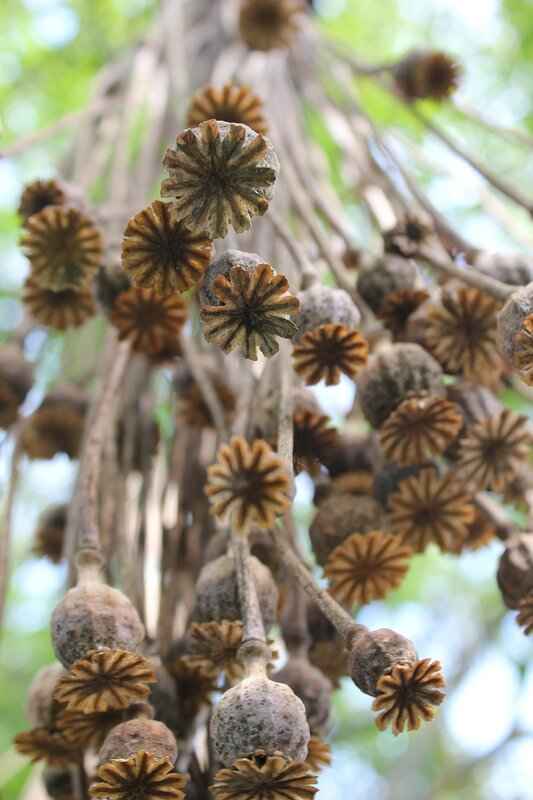
What Are Chia Seeds?
Chia seeds are small, nutrient-dense seeds derived from the Salvia hispanica plant, which is native to the regions of Mexico and Guatemala. These tiny black seeds have gained immense popularity in recent years, thanks to their remarkable health benefits and versatility in various culinary applications. Rich in essential nutrients, chia seeds are often considered a superfood that can easily be incorporated into a balanced diet.
Chia seeds are tiny black seeds from the Salvia hispanica plant, native to Mexico and Guatemala, known for their impressive nutrient profile and versatile culinary uses. These seeds are packed with important nutrients, making them a nutritional powerhouse that can contribute to overall health and wellness.
Chia seeds are often labeled as a superfood due to their high content of Omega-3 fatty acids, dietary fiber, protein, and various essential minerals. This unique combination of nutrients makes them a popular choice among health enthusiasts and those looking to enhance their diets.
- Calcium: Chia seeds are an excellent source of calcium, essential for maintaining strong bones and teeth.
- Magnesium: They contain magnesium, which plays a vital role in muscle function and energy production.
- Phosphorus: Phosphorus is crucial for the formation of bones and teeth.
- Antioxidants: Chia seeds are rich in antioxidants that help combat oxidative stress and inflammation in the body.
One of the standout features of chia seeds is their high concentration of Omega-3 fatty acids. These essential fats are known for their heart health benefits, including reducing inflammation and lowering cholesterol levels. Incorporating chia seeds into your diet can be a simple way to boost your intake of these healthy fats.
Chia seeds are also an excellent source of dietary fiber, which is important for digestive health. The fiber content aids in promoting regular bowel movements, managing weight, and stabilizing blood sugar levels. When consumed, chia seeds can absorb water and expand in the stomach, creating a feeling of fullness that can help control appetite.
For those looking to manage their weight, chia seeds can be a valuable addition to the diet. Their ability to absorb water and swell in the stomach can promote a sense of fullness, potentially reducing overall calorie intake. This makes them a great option for individuals aiming to lose weight or maintain a healthy weight.
Regular consumption of chia seeds can positively impact heart health. Studies have shown that they can help lower cholesterol levels, reduce blood pressure, and improve overall cardiovascular function. This makes them a heart-friendly food choice for individuals looking to enhance their cardiovascular health.
Thanks to their high fiber content, chia seeds can significantly enhance digestive health. They promote regular bowel movements, prevent constipation, and act as prebiotics, fostering the growth of beneficial gut bacteria. This is essential for maintaining a healthy digestive system.
While chia seeds are generally safe to consume, some individuals may experience digestive discomfort if they consume them in excessive amounts or without adequate hydration. It is always advisable to start with small quantities and gradually increase intake.
Chia seeds can be easily integrated into various dishes. They can be added to smoothies, used in baking, or made into chia pudding. Their versatility allows them to enhance both nutrition and texture in meals, making them a practical ingredient for everyday cooking.

Why Are Chia Seeds Considered a Superfood?
Chia seeds have gained immense popularity in recent years, and for good reason. These tiny seeds, derived from the Salvia hispanica plant, are not only versatile in culinary applications but also boast a remarkable nutritional profile. They are often referred to as a superfood due to their impressive array of health benefits, making them a staple for health enthusiasts and those seeking to enhance their diet.
Chia seeds are packed with essential nutrients that contribute to overall health. They are a rich source of:
- Omega-3 fatty acids: These healthy fats are crucial for heart health and reducing inflammation.
- Dietary fiber: Chia seeds contain a significant amount of fiber, promoting digestive health and aiding in weight management.
- Protein: They provide a plant-based protein source, making them an excellent addition to vegetarian and vegan diets.
- Essential minerals: Chia seeds are loaded with calcium, magnesium, and phosphorus, vital for bone health and metabolic functions.
The heart-healthy properties of chia seeds are attributed to their rich content of Omega-3 fatty acids. These fats help lower LDL cholesterol levels while increasing HDL cholesterol, promoting a healthier lipid profile. Additionally, studies suggest that regular consumption of chia seeds may help in:
- Reducing blood pressure, particularly in individuals with hypertension.
- Improving overall cardiovascular function.
Incorporating chia seeds into your diet may assist in weight loss efforts. Their unique ability to absorb water allows them to expand in the stomach, leading to a feeling of fullness that can help curb overeating. Furthermore, their high fiber content supports stable blood sugar levels, reducing cravings and promoting healthier eating habits.
Thanks to their high fiber content, chia seeds can significantly enhance digestive health. They promote regular bowel movements and help prevent constipation. Additionally, chia seeds act as prebiotics, fostering the growth of beneficial gut bacteria that are essential for a healthy digestive system.
Incorporating chia seeds into your meals is simple and versatile. Here are some popular methods:
- Chia Puddings: Mix chia seeds with your choice of milk or yogurt and let them soak overnight for a delicious breakfast or snack.
- Smoothies: Add chia seeds to your smoothies for an extra nutritional boost.
- Baking: Incorporate chia seeds into muffins, bread, or energy bars for added texture and health benefits.
- Thickening Agent: Use chia seeds as a natural thickener in soups and sauces.
While chia seeds are generally safe for most people, consuming them in excessive amounts without adequate hydration may lead to digestive discomfort, including bloating or gas. It’s also important to note that some individuals may experience allergic reactions, though this is rare.
In summary, chia seeds are a remarkable addition to any diet, offering a plethora of health benefits that can support heart health, aid in weight management, and improve digestive health. Their versatility in culinary applications makes them easy to incorporate into daily meals, making them a true superfood worth considering.
High Nutritional Value
Chia seeds, often regarded as a superfood, are not just tiny black seeds; they are a powerhouse of nutrition that can significantly enhance your overall health and wellness. Their impressive nutrient profile makes them a popular choice for health enthusiasts looking to boost their diets with essential vitamins and minerals.
Chia seeds are packed with a variety of nutrients, including:
- Calcium: Essential for bone health, chia seeds contain more calcium per ounce than milk.
- Magnesium: This mineral plays a crucial role in over 300 enzymatic reactions in the body, including energy production and muscle function.
- Phosphorus: Important for maintaining healthy bones and teeth, phosphorus also helps in energy production.
- Antioxidants: Chia seeds are rich in antioxidants, which help combat oxidative stress and inflammation in the body.
The nutritional benefits of chia seeds extend beyond just their mineral content. Here’s how they contribute to your health:
The high levels of calcium and phosphorus in chia seeds make them an excellent choice for maintaining strong bones. Incorporating them into your diet can help prevent osteoporosis and other bone-related issues.
Chia seeds are a great source of magnesium, which is vital for energy production and metabolism. This can help improve your overall energy levels, making you feel more active throughout the day.
With their high antioxidant content, chia seeds help protect your body from free radicals, which can lead to chronic diseases. Regular consumption can support your body’s natural defense mechanisms.
One of the remarkable properties of chia seeds is their ability to absorb water, expanding in the stomach and creating a feeling of fullness. This can help reduce overall calorie intake and assist in weight loss efforts.
Due to their high fiber content, chia seeds can slow down digestion, which helps you feel satisfied longer. This property makes them a valuable addition to meals, especially for those looking to manage their weight.
While chia seeds are generally safe for most people, it’s important to consume them in moderation. Some potential downsides include:
- Digestive Issues: Consuming too many chia seeds at once, especially without adequate hydration, can lead to bloating or gas.
- Allergic Reactions: Though rare, some individuals may experience allergic reactions, resulting in symptoms like itching or swelling.
Incorporating chia seeds into your daily meals is easy and versatile. Here are some popular methods:
- Chia Puddings: Mix chia seeds with your choice of milk or yogurt and let them sit overnight for a delicious breakfast or snack.
- Smoothies: Add a tablespoon of chia seeds to your smoothies for an extra nutritional boost.
- Baking: Substitute chia seeds for eggs in baking recipes, or sprinkle them on top of bread and muffins for added texture and nutrition.
In conclusion, the high nutritional value of chia seeds makes them an excellent addition to a balanced diet. With their numerous health benefits, they can help support bone health, aid in weight management, and provide antioxidant protection. Whether you choose to enjoy them in puddings, smoothies, or baked goods, chia seeds are a simple way to enhance your health and well-being.
Omega-3 Fatty Acids
Chia seeds are gaining popularity as a nutritional powerhouse, and one of their standout features is their exceptionally high content of . These essential fatty acids play a crucial role in maintaining overall health, particularly for heart health and inflammation reduction.
Omega-3 fatty acids are a type of polyunsaturated fat that is vital for human health. Unlike some fats, our body cannot produce Omega-3s on its own, making it essential to obtain them from our diet. The three main types of Omega-3 fatty acids are:
- Ala (Alpha-linolenic acid) – Found in plant sources like chia seeds.
- EPA (Eicosapentaenoic acid) – Primarily found in fish and algae.
- DHA (Docosahexaenoic acid) – Also found in fish and algae, crucial for brain health.
The heart health benefits of Omega-3 fatty acids are well-documented. Regular consumption of these fats can lead to:
- Lower Cholesterol Levels: Omega-3s help reduce levels of LDL cholesterol (the “bad” cholesterol) while increasing HDL cholesterol (the “good” cholesterol).
- Reduced Blood Pressure: Studies suggest that Omega-3s can help lower blood pressure, especially in people with hypertension.
- Improved Blood Vessel Function: Omega-3s promote better blood circulation and can reduce the risk of blood clots.
Inflammation is a natural response by the body to injury or infection, but chronic inflammation can lead to various health issues, including heart disease, cancer, and arthritis. Omega-3 fatty acids are known for their anti-inflammatory properties, which can help in:
- Reducing Inflammatory Markers: Omega-3s can lower levels of inflammatory markers in the body, helping to mitigate chronic inflammation.
- Promoting Joint Health: They can alleviate symptoms of arthritis and joint pain by reducing inflammation in the joints.
Incorporating chia seeds into your diet is an easy and effective way to boost your Omega-3 intake. Here are some practical tips:
- Add to Smoothies: Blend chia seeds into your morning smoothie for a nutritious boost.
- Make Chia Pudding: Soak chia seeds in almond milk or yogurt overnight to create a delicious pudding.
- Sprinkle on Salads: Use chia seeds as a topping for salads to add texture and nutritional value.
While Omega-3 fatty acids are generally safe for most people, excessive intake can lead to some side effects:
- Digestive Issues: High doses may cause gastrointestinal discomfort, including bloating or diarrhea.
- Blood Thinning: Omega-3s can have a blood-thinning effect, so individuals on anticoagulant medications should consult their healthcare provider.
In summary, chia seeds are an excellent source of Omega-3 fatty acids, offering numerous benefits for heart health and inflammation reduction. By incorporating these tiny seeds into your diet, you can enhance your overall health and well-being.
Dietary Fiber
Chia seeds, often referred to as a superfood, are not only versatile in the kitchen but also packed with numerous health benefits. One of the standout features of chia seeds is their high content, which plays a vital role in promoting overall health and wellness. In this section, we will delve into the various ways dietary fiber from chia seeds can enhance your health.
is a type of carbohydrate that the body cannot digest. Unlike other carbs that break down into sugar molecules, fiber cannot be broken down into sugar molecules, which is why it is essential for maintaining digestive health. There are two types of dietary fiber: soluble and insoluble, both of which are present in chia seeds.
- Regular Bowel Movements: The high fiber content in chia seeds helps to bulk up stool and promotes regular bowel movements, thus preventing constipation.
- Gut Health: Chia seeds act as prebiotics, which means they support the growth of beneficial gut bacteria. A healthy gut microbiome is crucial for overall digestive health.
Incorporating chia seeds into your diet can be an effective strategy for weight management. Due to their ability to absorb water, chia seeds can expand in the stomach, creating a sense of fullness. This can lead to reduced appetite and, consequently, lower calorie intake.
Yes, the soluble fiber in chia seeds can help slow down the absorption of sugar in the bloodstream, which contributes to maintaining stable blood sugar levels. This is particularly beneficial for individuals managing diabetes or those at risk of developing the condition.
Adding chia seeds to your meals is easy and can enhance both nutrition and texture. Here are some practical tips:
- Chia Pudding: Mix chia seeds with your choice of milk or yogurt and let it sit overnight for a delicious and nutritious breakfast.
- Smoothies: Blend chia seeds into your favorite smoothie for an extra fiber boost.
- Baking: Incorporate chia seeds into muffins, breads, or pancakes for added nutrition.
While chia seeds are generally safe for most people, it’s essential to consume them in moderation. Some individuals may experience digestive discomfort if they consume too many chia seeds without adequate hydration. Always ensure to drink plenty of water when incorporating chia seeds into your diet.
In summary, chia seeds are a fantastic source of dietary fiber, offering numerous benefits for digestive health, weight management, and blood sugar regulation. By including these tiny seeds in your diet, you can enhance your overall health and well-being.
Chia Seeds and Weight Loss
In the quest for effective weight management, incorporating chia seeds into your daily diet can be a game-changer. These tiny seeds, packed with nutrients, offer unique properties that may significantly aid in weight loss efforts.
One of the primary reasons chia seeds are beneficial for weight loss is their remarkable ability to absorb water. When soaked, they can swell up to 12 times their original size, forming a gel-like substance. This characteristic creates a sense of fullness in the stomach, which can help curb hunger and reduce overall calorie intake. By integrating chia seeds into meals, individuals may find themselves eating less, thus supporting their weight loss journey.
How Do Chia Seeds Promote Satiety?
- High Fiber Content: Chia seeds are an excellent source of dietary fiber. Each serving contains about 11 grams of fiber, which is essential for digestive health and helps maintain a feeling of fullness. Fiber slows digestion, leading to a gradual release of energy and prolonged satiety.
- Protein Power: In addition to fiber, chia seeds are also a good source of plant-based protein. Protein is known for its satiating effects, making it easier to control cravings and avoid unnecessary snacking.
- Low-Calorie Density: Chia seeds are low in calories while being high in nutrients. This means you can add them to your meals without significantly increasing your caloric intake, allowing for a satisfying yet healthy addition to your diet.
How to Use Chia Seeds for Weight Loss?
Incorporating chia seeds into your meals is simple and versatile. Here are some practical ways to use them:
- Chia Pudding: Combine chia seeds with your choice of milk or yogurt and let them soak overnight. Add fruits, nuts, or honey for flavor, creating a nutritious breakfast or snack.
- Smoothies: Blend chia seeds into your favorite smoothie recipe. They not only enhance the nutritional value but also provide a thick, satisfying texture.
- Baking: Add chia seeds to muffins, breads, or energy bars for an extra boost of fiber and protein.
Are There Any Considerations?
While chia seeds offer numerous benefits, moderation is key. It’s essential to consume them with adequate hydration, as their high fiber content can lead to digestive discomfort if not properly managed. Start with a small amount, gradually increasing as your body adjusts.
In summary, chia seeds can be a valuable addition to a weight loss regimen. Their ability to promote fullness, coupled with their rich nutrient profile, makes them an excellent ally in achieving your health goals. By incorporating them into your diet mindfully, you can harness their benefits while enjoying a variety of delicious meals.

How Do Chia Seeds Benefit Heart Health?
Chia seeds have gained significant attention in recent years for their impressive health benefits, particularly concerning heart health. These tiny seeds, derived from the Salvia hispanica plant, are packed with essential nutrients that contribute to overall cardiovascular wellness. In this section, we will explore how chia seeds can positively influence heart health by lowering cholesterol levels, reducing blood pressure, and improving overall cardiovascular function.
One of the most notable benefits of chia seeds is their ability to aid in cholesterol management. Research indicates that regular consumption of chia seeds may lead to a decrease in LDL cholesterol (often referred to as “bad” cholesterol) while simultaneously increasing HDL cholesterol (“good” cholesterol). This improvement in cholesterol levels is crucial for maintaining a healthy lipid profile, which can significantly reduce the risk of heart disease.
Chia seeds also play a vital role in blood pressure regulation. Studies have shown that incorporating these seeds into the diet can help lower blood pressure, particularly in individuals suffering from hypertension. The high levels of omega-3 fatty acids and fiber found in chia seeds contribute to this effect by promoting better blood vessel function and reducing inflammation, both of which are essential for maintaining healthy blood pressure levels.
In addition to managing cholesterol and blood pressure, chia seeds support overall cardiovascular function. The seeds are rich in antioxidants, which help combat oxidative stress and inflammation in the body. This reduction in inflammation can lead to improved heart health by preventing the buildup of plaque in the arteries, thereby promoting better blood circulation and reducing the risk of heart attacks and strokes.
Omega-3 fatty acids are crucial for heart health, and chia seeds are one of the richest plant-based sources available. These essential fats help lower triglycerides, reduce blood clotting, and decrease the risk of arrhythmias. By incorporating chia seeds into your diet, you can significantly boost your intake of omega-3s, which can lead to a healthier heart.
The high fiber content of chia seeds also contributes to heart health. Fiber helps lower cholesterol levels and aids in weight management, both of which are important factors in preventing heart disease. By promoting a feeling of fullness and stabilizing blood sugar levels, chia seeds can assist in maintaining a healthy weight, thereby reducing the risk of cardiovascular issues.
- Chia Puddings: Mix chia seeds with your choice of milk or yogurt and let them soak overnight for a nutritious breakfast.
- Smoothies: Add a tablespoon of chia seeds to your morning smoothie for an extra boost of nutrients.
- Baking: Incorporate chia seeds into baked goods like muffins or bread for added texture and health benefits.
- Salads: Sprinkle chia seeds onto salads for a crunchy texture and nutritional enhancement.
In summary, chia seeds are a powerful addition to any diet, particularly for those looking to improve their heart health. By lowering cholesterol levels, regulating blood pressure, and enhancing overall cardiovascular function, these tiny seeds can have a significant impact on your well-being. Incorporating chia seeds into your meals is not only easy but also a delicious way to support your heart health.
Cholesterol Management
is a crucial aspect of maintaining overall heart health. With the increasing prevalence of cardiovascular diseases, understanding how dietary choices can impact cholesterol levels is essential. Among various superfoods, chia seeds have gained attention for their potential benefits in managing cholesterol.
Chia seeds, derived from the Salvia hispanica plant, are rich in nutrients and have been linked to numerous health benefits. One of the most significant advantages they offer is their ability to positively influence cholesterol levels. Regular consumption of chia seeds may help lower LDL cholesterol, often referred to as “bad” cholesterol, while simultaneously increasing HDL cholesterol, known as “good” cholesterol. This shift contributes to a healthier lipid profile, which is crucial for reducing the risk of heart disease.
But how exactly do chia seeds achieve this? The answer lies in their impressive nutritional composition. Chia seeds are packed with omega-3 fatty acids, fiber, and antioxidants, all of which play a vital role in heart health. Omega-3 fatty acids are known for their anti-inflammatory properties and their ability to reduce triglycerides, which can contribute to lower LDL cholesterol levels.
Moreover, the high fiber content in chia seeds aids in cholesterol management by binding to bile acids in the digestive system. When fiber binds to these acids, it helps to facilitate their excretion from the body. This process prompts the liver to utilize more cholesterol to produce new bile acids, thereby lowering the levels of cholesterol circulating in the bloodstream.
To effectively incorporate chia seeds into your diet for cholesterol management, consider the following methods:
- Chia Seed Puddings: Mix chia seeds with your choice of milk and let them soak overnight. Add fruits and nuts for extra flavor and nutrition.
- Smoothies: Blend chia seeds into your morning smoothie for a nutrient boost without altering the taste.
- Baking: Include chia seeds in your baking recipes, such as muffins or bread, to enhance their nutritional profile.
In addition to their cholesterol-lowering effects, chia seeds also offer other heart health benefits. They can help regulate blood pressure, further reducing the risk of cardiovascular diseases. Research suggests that the combination of omega-3 fatty acids and fiber in chia seeds contributes to improved vascular function and blood circulation.
For those concerned about heart health, incorporating chia seeds into your daily routine can be a simple yet effective strategy. However, it is essential to maintain a balanced diet and consult with healthcare professionals, especially for individuals with pre-existing health conditions.
In summary, the regular consumption of chia seeds can significantly contribute to and overall heart health. By lowering LDL cholesterol and increasing HDL cholesterol, chia seeds help create a more favorable lipid profile, making them a valuable addition to a heart-healthy diet.
Blood Pressure Regulation
Chia seeds, derived from the Salvia hispanica plant, are celebrated for their numerous health benefits, particularly in relation to heart health. Among their many advantages, one of the most significant is their potential role in . This is especially crucial for individuals dealing with hypertension, a condition that affects millions worldwide and poses a serious risk for heart disease.
Research indicates that chia seeds may contribute to lowering blood pressure levels through several mechanisms:
- Rich in Omega-3 Fatty Acids: Chia seeds are an excellent source of omega-3 fatty acids, which are known for their anti-inflammatory properties. These fatty acids can help improve blood vessel function and reduce overall blood pressure.
- High Fiber Content: The substantial amount of dietary fiber in chia seeds aids in maintaining healthy blood pressure levels. Fiber helps to regulate blood sugar and cholesterol levels, both of which are essential for cardiovascular health.
- Antioxidant Properties: Chia seeds contain antioxidants that can help combat oxidative stress, a factor that contributes to high blood pressure and other cardiovascular issues.
Individuals with hypertension or those at risk of developing high blood pressure can particularly benefit from incorporating chia seeds into their diet. Studies suggest that regular consumption of these seeds can lead to significant improvements in blood pressure readings. However, it is essential to combine chia seed intake with a balanced diet and a healthy lifestyle for optimal results.
Integrating chia seeds into your diet is simple and versatile. Here are a few practical ways to enjoy their benefits:
- Chia Pudding: Soak chia seeds in almond milk or yogurt overnight to create a nutritious pudding. Add fruits and nuts for added flavor and nutrients.
- Smoothies: Blend chia seeds into your favorite smoothies for a nutrient boost. They can enhance the texture while providing essential fatty acids and fiber.
- Baking: Incorporate chia seeds into baked goods such as muffins or bread. They can replace eggs in recipes, acting as a binding agent while adding health benefits.
While chia seeds are generally safe for most people, it is essential to consume them in moderation. Some individuals may experience digestive discomfort if they consume too many chia seeds without adequate hydration. It’s advisable to start with a small amount and gradually increase your intake.
Before making significant dietary changes, especially for individuals with existing health conditions such as hypertension, it is crucial to consult with a healthcare professional. They can provide personalized advice based on individual health needs.
In summary, chia seeds are a powerful addition to the diet for those looking to manage their blood pressure and enhance overall heart health. Their rich nutrient profile, including omega-3 fatty acids, fiber, and antioxidants, makes them a valuable superfood for promoting cardiovascular wellness.

Can Chia Seeds Improve Digestive Health?
Chia seeds, often touted as a superfood, are not just a trendy addition to smoothies and salads; they offer significant benefits for digestive health. With their remarkable fiber content, these tiny seeds can play a crucial role in maintaining a healthy digestive system.
How Do Chia Seeds Promote Regular Bowel Movements?
One of the most notable benefits of chia seeds is their ability to enhance regular bowel movements. Each serving of chia seeds contains an impressive amount of dietary fiber, which is essential for digestive health. Fiber adds bulk to the stool, making it easier to pass through the intestines. This can help prevent constipation and promote a more regular digestive rhythm.
What is the Role of Fiber in Digestive Health?
Fiber is a vital component of a healthy diet, and chia seeds are rich in both soluble and insoluble fiber. Soluble fiber absorbs water and forms a gel-like substance in the digestive tract, which can help slow down digestion and keep you feeling full longer. Insoluble fiber, on the other hand, adds bulk to the stool and aids in moving food through the digestive system. Together, these types of fiber can significantly improve gut health.
How Do Chia Seeds Act as Prebiotics?
Chia seeds also possess prebiotic properties, meaning they serve as food for beneficial gut bacteria. A healthy gut microbiome is crucial for digestion, nutrient absorption, and even immune function. By fostering the growth of these good bacteria, chia seeds contribute to a balanced gut environment, which can enhance overall digestive health.
What Happens When Chia Seeds Absorb Water?
When chia seeds are soaked in water, they expand and form a gel-like consistency. This unique property not only helps with hydration but also facilitates digestion. As the gel passes through the intestines, it can help to lubricate the digestive tract, making it easier for food to move through. This can be particularly beneficial for individuals who struggle with digestive issues.
Are There Any Risks Associated with Chia Seeds?
While chia seeds are generally safe for most people, it’s important to consume them in moderation. Eating too many chia seeds without adequate hydration can lead to digestive discomfort, including bloating or gas. It’s recommended to start with a small amount and gradually increase your intake while ensuring you drink plenty of water.
How to Incorporate Chia Seeds into Your Diet?
- Chia Puddings: Mix chia seeds with milk or a dairy-free alternative and let them sit overnight to create a delicious pudding.
- Smoothies: Add a tablespoon of chia seeds to your smoothies for an extra fiber boost.
- Baking: Incorporate chia seeds into your baking recipes, such as muffins or bread, to enhance nutritional value.
- Soups and Sauces: Use chia seeds as a thickening agent in soups and sauces without altering the flavor.
In conclusion, chia seeds are a powerful ally for anyone looking to improve their digestive health. Their high fiber content, prebiotic properties, and ability to aid in hydration make them an excellent addition to a balanced diet. By incorporating chia seeds into your meals, you can take a proactive step toward maintaining a healthy digestive system.
Prebiotic Properties
Chia seeds, often celebrated for their numerous health benefits, possess remarkable that play a vital role in supporting gut health. As a natural source of dietary fiber, chia seeds contribute to the growth of beneficial gut bacteria, which are essential for a balanced digestive system. This article delves into how chia seeds function as prebiotics and their overall impact on digestive health.
What Are Prebiotics?
Prebiotics are non-digestible food components that stimulate the growth and activity of beneficial microorganisms in the gut. They serve as food for probiotics, which are the live bacteria that promote a healthy gut environment. By enhancing the growth of these friendly bacteria, prebiotics help maintain a balanced microbiome, crucial for optimal digestion and overall health.
Chia Seeds as a Source of Fiber
Chia seeds are incredibly rich in soluble fiber, which forms a gel-like substance when mixed with water. This property not only aids in hydration but also creates a favorable environment for beneficial bacteria to thrive. The high fiber content in chia seeds can help regulate bowel movements, prevent constipation, and enhance nutrient absorption, making them a valuable addition to any diet.
Enhancing Gut Bacteria
Research indicates that the consumption of chia seeds can lead to an increase in the population of beneficial gut bacteria such as lactobacilli and bifidobacteria. These bacteria are known for their positive effects on gut health, including improved digestion and enhanced immune function. By incorporating chia seeds into your diet, you can foster a thriving gut microbiome, which is crucial for maintaining digestive health.
Benefits of a Healthy Gut Microbiome
- Improved Digestion: A balanced gut microbiome aids in breaking down food more efficiently, leading to better nutrient absorption.
- Enhanced Immune Function: A healthy gut flora can help strengthen the immune system, protecting the body against infections and diseases.
- Reduced Inflammation: Beneficial gut bacteria can help lower inflammation levels in the body, which is linked to various chronic diseases.
How to Incorporate Chia Seeds into Your Diet
Integrating chia seeds into your daily routine is simple and versatile. Here are some practical ways to enjoy their prebiotic benefits:
- Chia Pudding: Mix chia seeds with your choice of milk or yogurt, let it sit overnight, and enjoy a nutritious breakfast or snack.
- Smoothies: Add chia seeds to your smoothies for an extra boost of fiber and nutrients.
- Baking: Incorporate chia seeds into baked goods like muffins or bread for added texture and health benefits.
Conclusion
In summary, chia seeds act as effective prebiotics, promoting the growth of beneficial gut bacteria and enhancing digestive health. By adding these tiny seeds to your diet, you can support your gut microbiome, leading to improved digestion, enhanced immune function, and reduced inflammation. With their numerous health benefits, chia seeds are undoubtedly a valuable addition to a balanced diet.
Hydration and Digestion
Chia seeds, often celebrated for their impressive health benefits, play a crucial role in enhancing both hydration and digestion. When these tiny seeds are soaked in water, they absorb liquid and swell, forming a gel-like consistency. This unique property not only makes them a fascinating ingredient in various recipes but also serves significant health purposes.
The gel-like substance created when chia seeds are soaked is primarily due to their high soluble fiber content. This gel can hold up to 12 times its weight in water, which helps in keeping the body hydrated. Consuming chia seeds can be particularly beneficial for athletes or individuals engaging in physical activities, as it helps maintain fluid balance and prevent dehydration.
Chia seeds are rich in dietary fiber, which is essential for a healthy digestive system. The fiber content aids in promoting regular bowel movements and preventing constipation. When chia seeds absorb water, they expand and create a bulk that can help push food through the digestive tract more efficiently.
Beyond their immediate effects on digestion, chia seeds also act as prebiotics. This means they provide nourishment for beneficial gut bacteria, which are crucial for maintaining a balanced microbiome. A healthy gut flora can enhance nutrient absorption and support overall digestive health.
Chia seeds can be a valuable addition to a weight management plan. Due to their ability to absorb water and form a gel, they can promote a feeling of fullness. This satiety can help reduce overall calorie intake, making it easier to manage weight effectively.
- Chia Puddings: Soak chia seeds in almond milk or yogurt overnight to create a nutritious pudding.
- Smoothies: Add soaked chia seeds to smoothies for an extra boost of nutrients and a thicker texture.
- Salads: Sprinkle chia seeds on salads for added crunch and nutritional benefits.
- Baking: Use chia seeds as an egg substitute in vegan baking or add them to bread and muffin recipes.
In summary, chia seeds are not only a versatile ingredient but also a powerhouse for hydration and digestion. Their unique properties can enhance your overall health, making them an excellent addition to any diet. By incorporating chia seeds into your meals, you can take advantage of their benefits while enjoying a variety of delicious dishes.

Are There Any Side Effects of Chia Seeds?
Chia seeds have gained immense popularity due to their numerous health benefits, but it’s essential to address the potential side effects associated with their consumption. Understanding these side effects can help individuals make informed choices about including chia seeds in their diets.
While chia seeds are generally considered safe for most people, there are some possible side effects that should be taken into account. These can vary based on individual health conditions, the amount consumed, and how they are prepared.
One of the most common concerns is digestive discomfort. Chia seeds are high in fiber, which is beneficial for digestive health, but consuming them in excessive amounts can lead to issues such as:
- Bloating: Eating too many chia seeds can cause the stomach to feel swollen or distended.
- Gas: Increased fiber intake can lead to gas production in the intestines, resulting in discomfort.
- Constipation: Ironically, while chia seeds can aid digestion, consuming them without adequate hydration can lead to constipation.
Chia seeds absorb up to 12 times their weight in water. If not properly hydrated, they can expand in the stomach and potentially cause a blockage, leading to more severe digestive issues. Therefore, it is crucial to:
- Soak chia seeds before consumption to allow them to absorb water and form a gel-like consistency.
- Drink plenty of fluids throughout the day, especially when incorporating chia seeds into your diet.
Though rare, some individuals may experience allergic reactions to chia seeds. Symptoms can include:
- Itching: Some may notice localized itching after consuming chia seeds.
- Swelling: Allergic reactions can lead to swelling in various parts of the body.
- Respiratory issues: In severe cases, allergies may trigger breathing difficulties.
Chia seeds can also interact with certain medications, particularly those related to blood sugar and blood pressure. Due to their ability to lower blood sugar levels, individuals on diabetes medication should monitor their intake closely. Similarly, because chia seeds can affect blood pressure, those on antihypertensive medications should consult a healthcare provider before adding them to their diet.
To enjoy the benefits of chia seeds while minimizing potential side effects, consider the following tips:
- Start small: Begin with a small amount, such as a teaspoon, and gradually increase your intake.
- Stay hydrated: Always drink water or other fluids when consuming chia seeds, especially if they are dry.
- Consult a healthcare professional: If you have underlying health conditions or are pregnant, seek advice before adding chia seeds to your diet.
In summary, while chia seeds offer numerous health benefits, it is essential to be aware of their potential side effects. By consuming them in moderation and ensuring adequate hydration, most individuals can safely enjoy the nutritional advantages that chia seeds provide.
Potential Allergies
Chia seeds have gained immense popularity as a health food, celebrated for their numerous benefits. However, as with any food, it is essential to be aware of potential allergic reactions that some individuals may experience when consuming chia seeds. This section delves into the nature of these allergies, their symptoms, and recommendations for those who may be sensitive to chia seeds.
Though rare, allergic reactions to chia seeds can occur. Individuals who are allergic may experience a range of symptoms. Common manifestations include:
- Itching or irritation, particularly around the mouth and throat
- Swelling of the lips, tongue, or face
- Skin reactions such as hives or rashes
- Digestive issues including nausea, vomiting, or diarrhea
- Respiratory problems such as wheezing or difficulty breathing
If you experience any of these symptoms after consuming chia seeds, it is crucial to seek medical advice promptly.
Individuals with a history of allergies to other seeds, such as sesame or flaxseed, may be at a higher risk of developing an allergy to chia seeds. Additionally, those with existing food allergies or intolerances should approach chia seeds with caution. It is advisable to consult with a healthcare professional before introducing chia seeds into your diet.
If you suspect that you may be allergic to chia seeds, the best course of action is to avoid consuming them altogether. Here are some practical steps to manage potential allergies:
- Read Labels: Always check food labels for chia seeds, as they may be present in various products, including baked goods and health bars.
- Consult a Specialist: If you experience allergic symptoms, consult an allergist for testing and guidance.
- Alternative Seeds: Consider substituting chia seeds with other seeds that are less likely to cause allergic reactions, such as pumpkin or sunflower seeds.
In the event of a severe allergic reaction, such as anaphylaxis, it is vital to seek emergency medical help immediately. Symptoms of anaphylaxis may include difficulty breathing, swelling of the throat, rapid heartbeat, and a drop in blood pressure. Individuals with known allergies should carry an epinephrine auto-injector as a precaution.
While chia seeds are generally safe and beneficial for most people, it is essential to be aware of the potential for allergic reactions. By understanding the symptoms, risks, and management strategies associated with chia seed allergies, you can make informed dietary choices and enjoy the health benefits of chia seeds safely.
Digestive Discomfort
Chia seeds have gained immense popularity as a health food, celebrated for their numerous benefits. However, as with any food, moderation is key. One area of concern that deserves attention is the potential for when consuming chia seeds, especially in large quantities.
Chia seeds are rich in dietary fiber, which is beneficial for digestive health. However, consuming too many seeds at once can overwhelm the digestive system. This is particularly true if the seeds are not adequately hydrated before consumption. When chia seeds are ingested dry, they can absorb water from the digestive tract, leading to symptoms such as bloating, gas, and even discomfort.
To mitigate the risk of digestive issues, it is crucial to consume chia seeds with sufficient water. A general guideline is to mix one tablespoon of chia seeds with at least 8 ounces of liquid. This allows the seeds to swell and form a gel-like consistency, making them easier to digest. Additionally, drinking plenty of water throughout the day can help facilitate digestion and prevent any potential discomfort.
- Bloating: A common symptom that occurs when the stomach feels full or swollen.
- Gas: Excessive fiber intake can lead to increased gas production in the gut.
- Abdominal Pain: Some individuals may experience cramping or pain as their digestive system reacts to the sudden influx of fiber.
While many people can enjoy chia seeds without any issues, certain individuals may be more susceptible to digestive discomfort. These include:
- People with irritable bowel syndrome (IBS) or other gastrointestinal disorders.
- Individuals who are not accustomed to high-fiber diets.
- Those who consume chia seeds without adequate hydration.
To enjoy the benefits of chia seeds while minimizing the risk of digestive issues, consider the following tips:
- Start with small amounts, such as one teaspoon, and gradually increase your intake.
- Always soak chia seeds in water or another liquid for at least 15 minutes before consuming.
- Incorporate chia seeds into meals that contain other hydrating ingredients, such as smoothies or yogurt.
- Listen to your body; if you experience discomfort, reduce your intake.
If you experience persistent digestive issues after consuming chia seeds, it may be wise to consult a healthcare professional. They can provide personalized advice and determine if chia seeds are suitable for your diet. In rare cases, individuals may have an allergy to chia seeds, which can lead to more severe reactions.
In conclusion, while chia seeds are a nutritional powerhouse, it is essential to consume them wisely. By understanding the potential for digestive discomfort and following best practices for consumption, you can enjoy the many health benefits that chia seeds offer without the unwanted side effects.
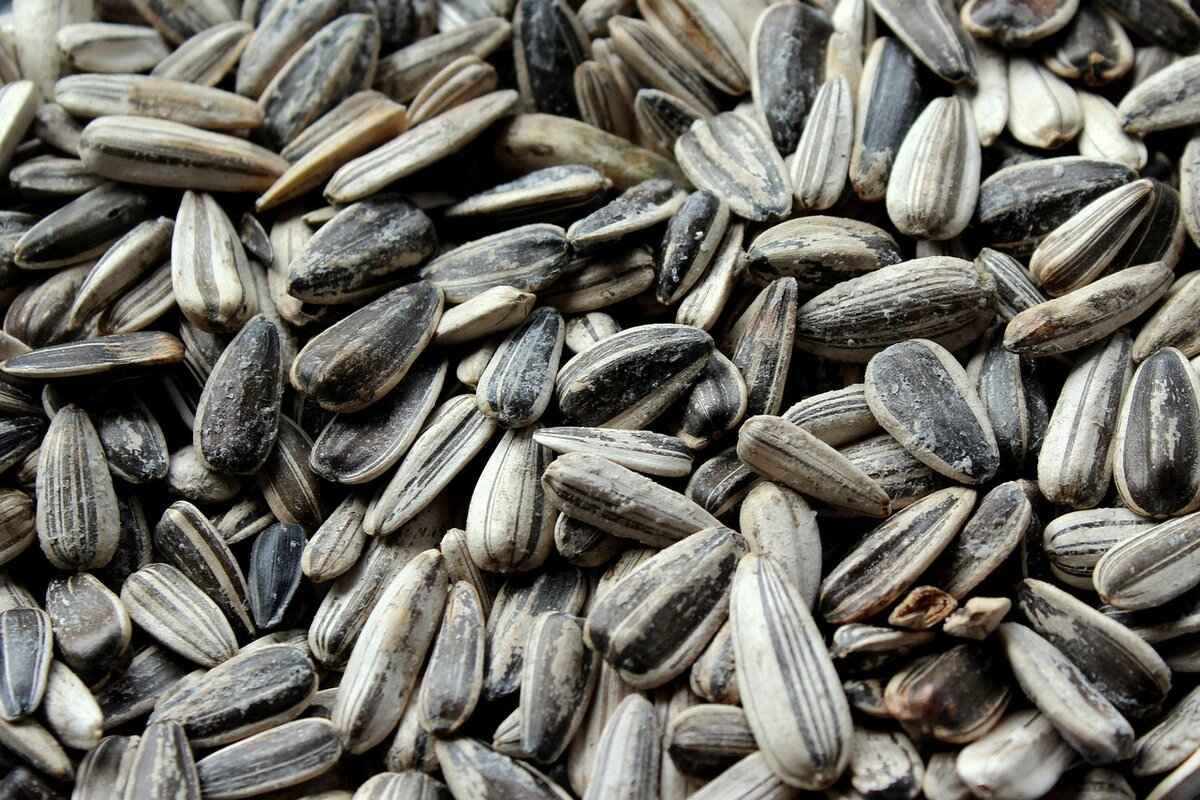
How to Incorporate Chia Seeds into Your Diet?
Chia seeds are a remarkable addition to any diet, offering a plethora of health benefits and culinary versatility. These tiny seeds can be effortlessly incorporated into various dishes, enhancing both nutrition and texture. Below, we explore several innovative ways to include chia seeds in your meals, ensuring you maximize their potential.
- Chia Puddings: A popular choice for breakfast or snacks, chia puddings are simple to make. Combine chia seeds with your choice of milk (dairy or plant-based) and sweetener. Let the mixture sit for a few hours or overnight until it thickens. Add fruits, nuts, or spices for extra flavor.
- Smoothies: Incorporating chia seeds into smoothies is a fantastic way to boost your nutrient intake. Blend your favorite fruits and vegetables with a tablespoon of chia seeds for added fiber and protein. This not only enhances the smoothness but also provides a satisfying texture.
- Baking: Chia seeds can be used in baking to improve the nutritional value of your favorite recipes. Substitute a portion of flour with ground chia seeds in muffins, breads, or pancakes. They can also replace eggs in vegan baking when mixed with water to form a gel-like consistency.
- Salads and Dressings: Sprinkle chia seeds over salads for a delightful crunch. You can also incorporate them into homemade salad dressings. Mix chia seeds with olive oil, vinegar, and herbs for a nutritious dressing that adds flavor and texture.
- Soups and Sauces: Use chia seeds as a thickening agent in soups and sauces. When added to liquids, they absorb moisture and create a gel-like texture, enhancing the dish’s consistency without altering the flavor.
- Snacks: Create energy bars or snacks by mixing chia seeds with nuts, dried fruits, and oats. These homemade snacks are not only nutritious but also provide a quick energy boost.
Incorporating chia seeds into your diet not only diversifies your meals but also offers numerous health advantages. They are rich in Omega-3 fatty acids, which support heart health, and high in fiber, aiding digestion and promoting a feeling of fullness. Additionally, chia seeds are an excellent source of protein, making them an ideal addition for those looking to increase their protein intake without consuming animal products.
To fully benefit from chia seeds, it’s essential to prepare them properly. Soaking chia seeds in water or any liquid before consumption allows them to expand and form a gel. This process not only makes them easier to digest but also enhances their nutritional absorption. Aim for a ratio of 1:4 (one part chia seeds to four parts liquid) and let them sit for at least 30 minutes.
- Start Small: If you are new to chia seeds, begin with small amounts to allow your digestive system to adjust.
- Stay Hydrated: Ensure you drink plenty of water when consuming chia seeds, especially when they are dry, to prevent any digestive discomfort.
- Experiment: Don’t hesitate to experiment with different recipes and flavors. Chia seeds are incredibly versatile and can complement a wide range of dishes.
By incorporating chia seeds into your daily meals, you can enjoy their myriad health benefits while adding variety to your diet. Whether you prefer them in puddings, smoothies, or baked goods, chia seeds are a simple yet effective way to enhance your overall nutrition.
Chia Puddings and Smoothies
Chia seeds have gained immense popularity in recent years, particularly as key ingredients in chia puddings and s smoothies. These delightful dishes not only offer a unique texture but also allow for a plethora of creative flavor combinations, maximizing the health benefits of chia seeds.
Chia puddings and smoothies are not just trendy; they are highly nutritious. By incorporating chia seeds into these meals, you can significantly boost your intake of essential nutrients. Chia seeds are rich in Omega-3 fatty acids, fiber, and protein, making them a powerhouse of nutrition. When soaked in liquid, chia seeds absorb water and expand, creating a gel-like consistency that adds a satisfying texture to puddings and smoothies.
Making chia pudding is remarkably simple. Here’s a basic recipe:
- Ingredients: 1/4 cup chia seeds, 1 cup almond milk (or any milk of choice), 1 tablespoon honey or maple syrup, and your choice of fruits and toppings.
- Instructions: In a bowl, mix the chia seeds with almond milk and sweetener. Stir well to prevent clumping. Let it sit for about 10-15 minutes, then stir again. Refrigerate for at least 2 hours or overnight. Top with fruits, nuts, or granola before serving.
Smoothies are another fantastic way to incorporate chia seeds into your diet. Here are a few delicious combinations:
- Berry Blast: Blend 1 cup of mixed berries, 1 banana, 1 cup of spinach, and 1 tablespoon of chia seeds with almond milk.
- Tropical Paradise: Combine 1 cup of pineapple, 1 banana, 1/2 cup of coconut milk, and 1 tablespoon of chia seeds for a refreshing drink.
- Green Protein Smoothie: Mix 1 cup of kale, 1 banana, 1 tablespoon of almond butter, and 1 tablespoon of chia seeds with water or milk.
Incorporating chia seeds into puddings and smoothies can yield numerous health benefits:
- Improved Digestion: The high fiber content in chia seeds promotes digestive health and regularity.
- Weight Management: Chia seeds can help you feel full longer, aiding in weight control.
- Heart Health: Regular consumption may lower cholesterol levels and improve cardiovascular health.
To make the most out of your chia puddings and smoothies:
- Experiment with different liquids like coconut milk, oat milk, or yogurt for varied flavors.
- Add spices such as cinnamon or vanilla to enhance taste.
- Always allow chia seeds to soak adequately to achieve the desired texture.
In summary, are not only delicious but also a fantastic way to reap the health benefits of chia seeds. With endless flavor possibilities and simple preparation, they can easily become a staple in your diet.
Baking and Cooking
Chia seeds are not just a health trend; they are a versatile ingredient that can elevate your culinary creations. Their ability to absorb moisture and form a gel-like consistency makes them an excellent addition to various recipes. In this section, we will explore how to effectively incorporate chia seeds into baking and cooking while enhancing both nutrition and flavor.
When it comes to baking, chia seeds can be a game-changer. They can be used in a variety of baked goods, from breads to muffins, providing a nutritional boost without compromising taste. Here are some ways to incorporate chia seeds into your baking:
- Egg Substitute: Chia seeds can replace eggs in vegan recipes. To create a chia egg, mix 1 tablespoon of chia seeds with 2.5 tablespoons of water, let it sit for a few minutes until it thickens, and use it as you would an egg.
- Texture and Crunch: Adding whole chia seeds to your dough or batter can give your baked goods a delightful crunch while also improving their nutritional profile.
- Moisture Retention: Chia seeds can help retain moisture in baked goods, resulting in a softer texture and extending their shelf life.
Chia seeds are not limited to baking; they can also be a fantastic addition to your cooking repertoire. Here’s how you can use them:
- Thickening Agent: Chia seeds can be used to thicken soups and sauces. When added to liquids, they swell and create a gel-like consistency, which can enhance the texture of your dishes without altering their flavors.
- Nutritious Soups: Incorporating chia seeds into soups not only thickens them but also boosts their nutritional value, adding fiber, protein, and essential fatty acids.
- Salad Dressings: Blend chia seeds into your salad dressings for added thickness and nutrition. They can help emulsify the dressing, making it creamier and more satisfying.
There are countless ways to enjoy chia seeds in your meals. Here are some creative ideas:
- Chia Jam: Combine chia seeds with your favorite fruits and a sweetener to create a healthy jam. The chia seeds will thicken the mixture, providing a delicious spread for toast or pancakes.
- Chia Seed Energy Bars: Make homemade energy bars by mixing oats, nuts, and chia seeds with a sweetener. Press the mixture into a pan, refrigerate, and cut into bars for a nutritious snack.
- Chia Seed Granola: Add chia seeds to your granola recipe for an extra crunch and nutritional boost. They can enhance the overall texture and flavor of your breakfast.
Incorporating chia seeds into your cooking and baking not only enhances the nutritional value of your meals but also adds unique textures and flavors. Whether you are creating a delicious chia pudding, a thick soup, or a moist loaf of bread, chia seeds can be your ally in the kitchen. With their numerous health benefits and culinary versatility, they truly deserve a place in your pantry.
Frequently Asked Questions
- What are the main health benefits of chia seeds?
Chia seeds are packed with nutrients, offering benefits like improved heart health, better digestion, and weight management. They are rich in Omega-3 fatty acids, fiber, and essential minerals, making them a fantastic addition to any diet.
- How can I incorporate chia seeds into my meals?
You can easily add chia seeds to smoothies, oatmeal, or yogurt. They also work great in baking or as a thickening agent in soups. Just remember, they absorb liquid and expand, so a little goes a long way!
- Are there any side effects of eating chia seeds?
While chia seeds are generally safe, consuming them in large amounts without enough water can lead to digestive discomfort. Some people may also have allergies, though this is quite rare.
- Can chia seeds help with weight loss?
Absolutely! Chia seeds absorb water and expand in your stomach, which can help you feel fuller for longer. This can aid in reducing overall calorie intake and support weight loss efforts.
- How do chia seeds benefit heart health?
Chia seeds help lower LDL cholesterol and raise HDL cholesterol levels, contributing to a healthier heart. Their Omega-3 content also plays a crucial role in reducing inflammation and regulating blood pressure.

